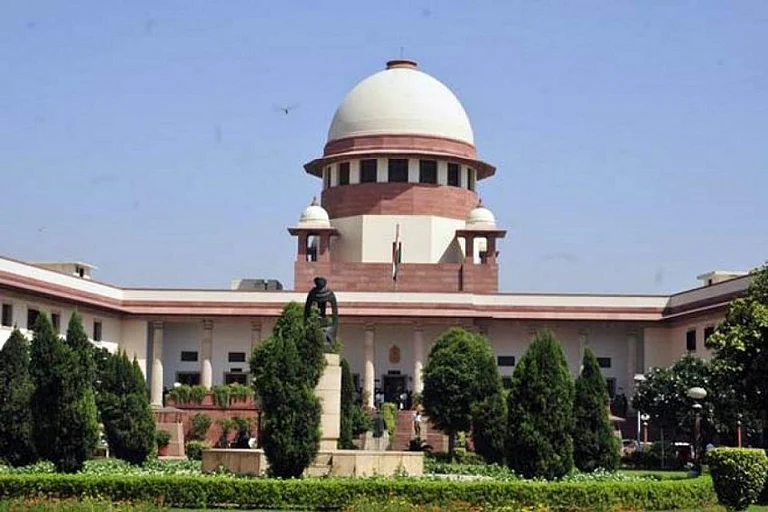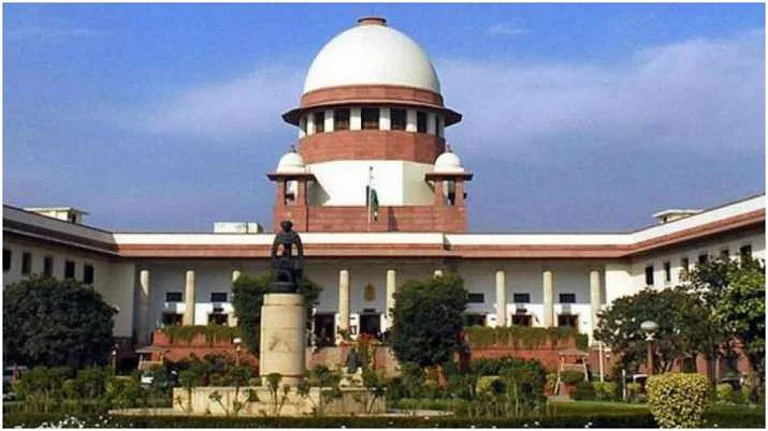
The Supreme Court reserved its verdict on Justice Yashwant Varma’s plea challenging the in-house inquiry ordered by the CJI after cash was found at his home, which he claimed was unconstitutional.
The bench, led by Justice Dipankar Datta, upheld the inquiry’s legality under the Judges (Protection) Act, 1985, calling it a valid, non-punitive safeguard.
The Court criticized Varma for objecting after participating and rejected referring the matter to a Constitution Bench, affirming the CJI’s responsibility to act on judicial misconduct.
The Supreme Court on Wednesday reserved its judgment on a petition filed by Justice Yashwant Varma of the Allahabad High Court, who challenged the legality of an in-house inquiry ordered by the Chief Justice of India following the discovery of cash at his official residence in Delhi earlier this year. The inquiry, initiated after a fire at Justice Varma’s home on March 14, led to the recovery of high-value currency notes, resulted in a report recommending action that was subsequently forwarded to the President and Prime Minister.
Justice Varma, who filed the petition under the anonymised name “XXX,” argued that the in-house mechanism, based on a 1999 Full Court Resolution, had evolved into a parallel and extra-constitutional process. He claimed it undermined Articles 124 and 218 of the Constitution, which provide that the removal of High Court and Supreme Court judges can only be carried out through a parliamentary process following a formal inquiry under the Judges (Inquiry) Act, 1968. According to the petition, the internal inquiry unjustifiably exceeded its original scope of self-regulation and fact-finding by culminating in recommendations for removal.
During the hearing, the bench of Justices Dipankar Datta and A. G. Masih took a firm stance in support of the inquiry process. Justice Datta pointed to Section 3(2) of the Judges (Protection) Act, 1985, noting that it explicitly allows not only for civil or criminal action but also for other forms of proceedings, including non-punitive, institutional ones, to be taken against a judge. He emphasised that the word “otherwise” in the statute is significant and justifies the use of internal mechanisms such as the in-house procedure to preserve public confidence in the judiciary.
The court rejected arguments made by Senior Advocate Kapil Sibal, appearing for Justice Varma, that the case raised constitutional questions requiring reference to a larger bench. Justice Datta stated that the powers granted under the Judges (Protection) Act were clear and adequate to authorise such inquiries. He also noted that the in-house mechanism does not adjudicate guilt or determine ownership of the recovered cash but merely assesses whether a judge’s conduct warrants further action to protect judicial integrity.
The bench expressed dissatisfaction with Justice Varma’s decision to challenge the inquiry only after participating in it. Justice Datta asked why the judge had not approached the court earlier if he believed the process to be unconstitutional. Sibal responded that reputational damage had already occurred due to the release of an audio recording, and that a legal remedy would have been premature until the inquiry resulted in a concrete recommendation. However, the court appeared unconvinced, suggesting that the judge had ample opportunity to raise the issue before the process reached its conclusion.
With the Supreme Court’s decision now reserved, the matter may soon proceed to the Parliament, where Speaker Om Birla is expected to announce the formation of an inquiry committee under the Judges (Inquiry) Act to examine the allegations. If pursued, it would mark a rare instance of judicial conduct being scrutinised at the parliamentary level.
Justice Datta concluded the hearing by emphasising that while judges enjoy statutory protection from arbitrary action, the judiciary itself must retain the power to take internal steps to uphold its credibility. He asserted that the Chief Justice of India is not a ceremonial figure but a constitutional authority entrusted with the responsibility of ensuring the integrity of the institution. The final ruling, when delivered, is likely to set a significant precedent in the ongoing conversation about judicial accountability in India.


























